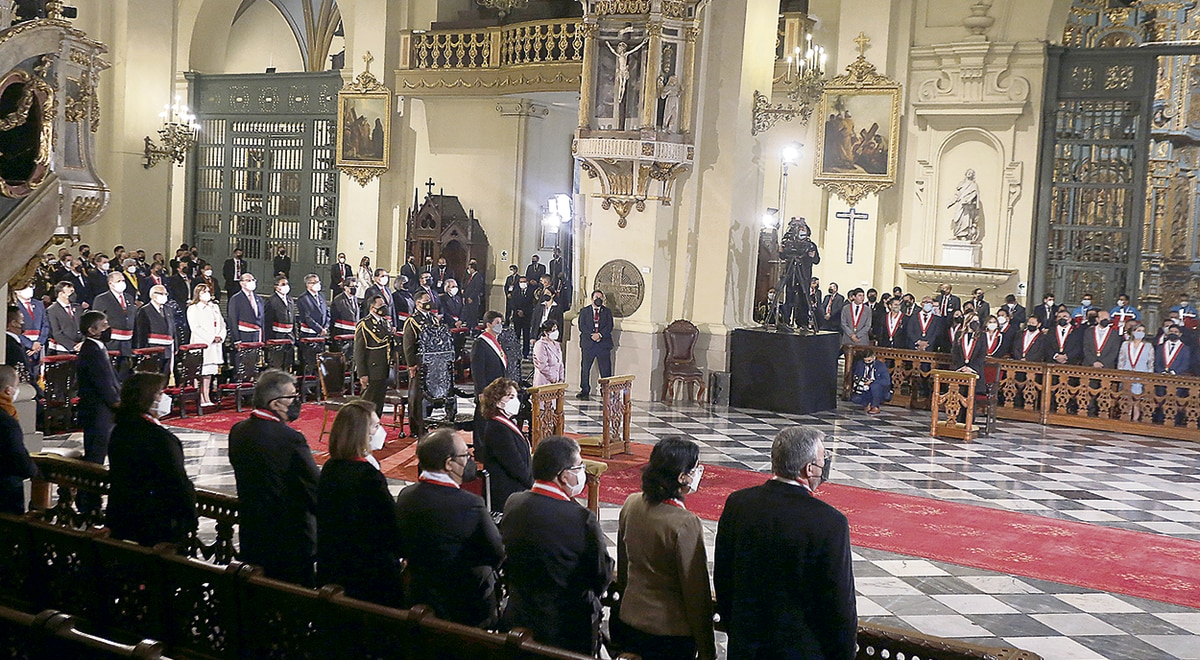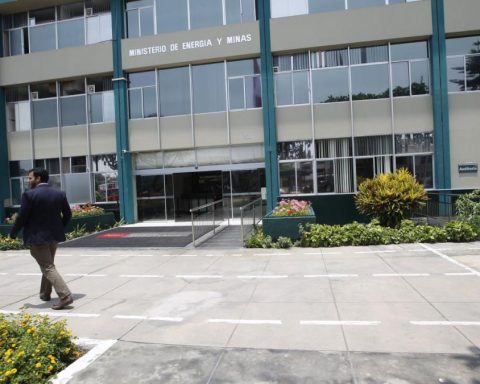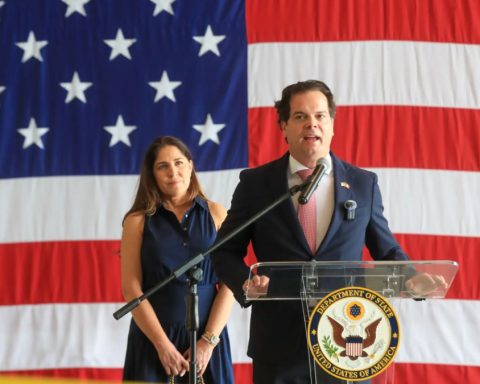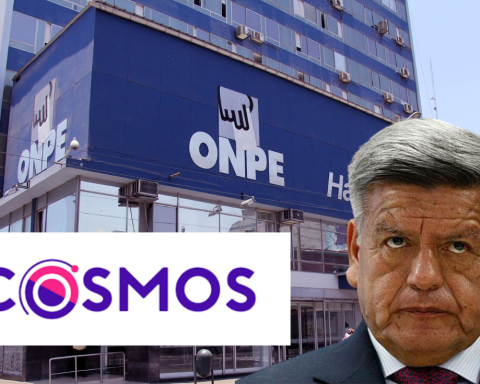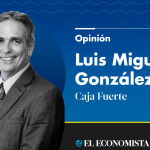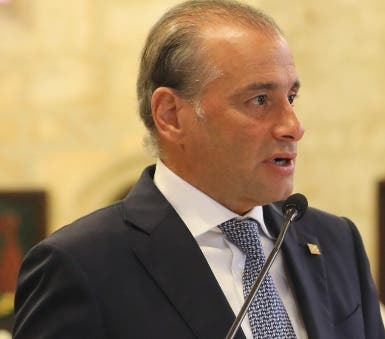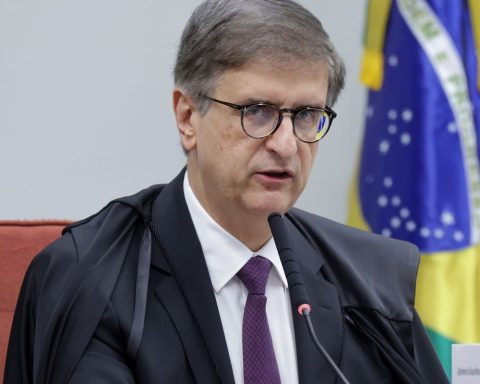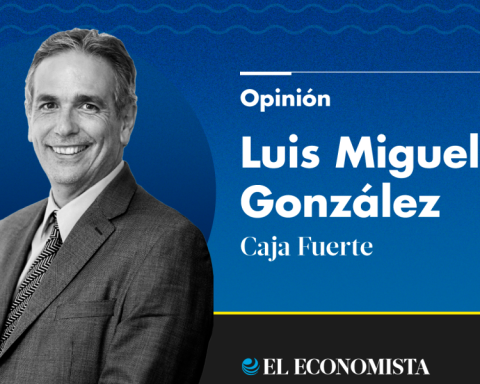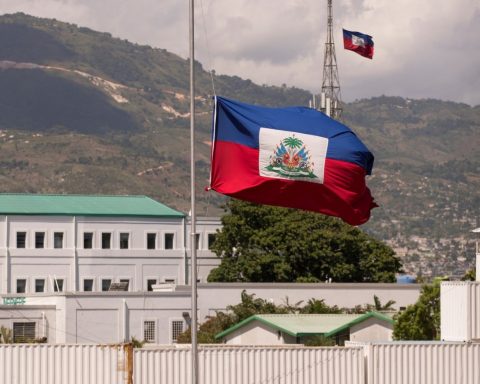In front of President peter castleministers and congressmen, the Archbishop of Lima, charles castlerecalled during the homily of the mass and tedeum the gesture of the liberator Don José de San Martín in 1822 by leaving the independence process in Peru in the hands of the emancipator Simón Bolívar as an act of realism and generosity.
“Don José de San Martín understood that in order to achieve the good of Peru, an adequate and fair act of detachment had to be carried out that would allow an effective action that would culminate the war. For this reason, he decided to go deeper still, to withdraw to make way for those who had the forces prepared so that the libertarian and republican process would not go backwards”, he said in the homily, recalling the letter from San Martín to Bolívar dated August 29 of that year.
In this sense, Archbishop Carlos Castillo pointed out that today an act of detachment in the political and public sphere is urgently needed in the country.
YOU CAN SEE: Pedro Castillo: what issues did the president address in his message to the nation?
“Appreciating this gesture and selfless attitude of San Martín, let us consider, then, Isn’t this detachment also urgent today? Do we not miss the presence of that generosity in the entire national leadership, at any of its levels and especially in the political and public sphere?
Citing the historian Jorge Basadrewho said that our republic really began in 1822 because one thing had been to proclaim it and another to carry it out, Archbishop Castillo pointed out that, just as At the time of our emancipation there were ambitions, political appetites and corruption, today there are deficient and corroded public institutions.
“Yesterday: caudillismos, particular ambitions, ambiguities, lukewarmness and complicity with colonialism, betrayals, appetites for power, corruption, aristocratic nostalgia. Today: deficient and corroded public institutions in the face of security needs, health, work, quality education, ecological balance, solidarity-based autonomous organization, development of native populations”, he stressed.
YOU CAN SEE: Pedro Castillo and his message to the nation: relive the speech of the President of the Republic
Ceremony. Archbishop of Lima, Carlos Castillo, presided over mass. “Isn’t this detachment in the political and public sphere also urgent today?”
In this sense, Castillo argued that there is a huge political crisis “with a viral background of corruption and cover-up at the service of private interests.” Thus, he said that signs of this are indifference, individualism, group interests, and mafias.
She added that this attitude of detachment is appreciated in the women’s organizations of the common pots, while it is lacking in those who direct the “zones of power.”
at another time, the archbishop affirmed that all Peruvians are important and even more so the vulnerable in the city and in the countryside, “who suffer poverty, misery, disease, hunger, lack of employment, economic instability, ecological damage, street violence, machismo and mistreatment of women, racism and discrimination of all kinds, lousy business-based education, boredom with politics, hopelessness and intolerance.
YOU CAN SEE: Pedro Castillo: verification of the president’s speech during the message to the nation for July 28
Likewise, he called for not resigning himself to corruption and that it can be defeated. “Let us participate in this process that leads to the breadth of democracy”held. The mass and tedeum held in the Cathedral of Lima, began at 8:30 a.m. and ended at 9:45 a.m.
Ricardo Gareca and Kimberly Garcia
The Archbishop of Lima, Carlos Castillo, referred in his homily to the former coach of the soccer team Ricardo Gareca and the athlete Kimberly Garcia as symbols of hope to later say that they were mistreated.
“The current images of Ricardo Gareca and Kimberly García, overflowing with happiness and encouraging our hope, but battered by the narrow selfishness of misguided interests, they reaffirm us in that mission, because they continue to leave us the same legacy that we must expand to the broader structures of our Peruvian society”, he mentioned.
YOU CAN SEE: Pedro Castillo: the paragraph about the fugitives that he did not read in his message to the nation
No strong message for the regions
Approach by Jean Paul Benavente, president of the ANGR
It still shows that we’re on autopilot, no serious proposals are made to recover the state’s capacity to build bridges with opposition forces, with representative institutions such as Congress, the Judiciary, the National Prosecutor’s Office, Confiep, CGTPConveagro, professional associations, obviously with the regional and municipal governments, to get out of this crisis.
From the perspective of the regions, there is also no strong message about the decentralization process. He has announced works, but they are not enough. Today the budget execution is around 30% in investments. He has not indicated how investments in the country are going to be speeded up.
There are problems in all regions to unlock investments, obtain resources to complete projects, measures in resource management in order to streamline the functioning of health and education. Ten regions are in a delicate situation. Their investments are below 25% and their levels of competitiveness are far behind.
